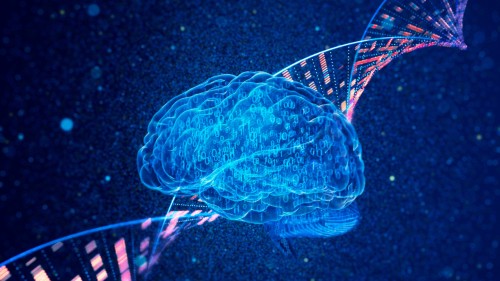Call for papers: Neurogenetics Collection
Published in Neuroscience, Genetics & Genomics, and General & Internal Medicine

Explore the Research

Neurogenetics
This Scientific Data Collection welcomes the submission of Data Descriptors describing the curation, validation, and sharing of datasets relevant to…
Collection Overview
Scientific Data has launched a Guest-Edited Collection on Neurogenetics.
Understanding the genetic underpinnings of neural function, development, and disease is a rapidly evolving field with profound implications for neuroscience and medicine. By ensuring data documentation and open accessibility, this Collection aims to support reproducibility and accelerate discoveries at the intersection of genetics and neuroscience.
This will be a Collection of data descriptors and will be open for submissions from all authors – on the condition that the manuscripts fall within the scope of the Collection and of Scientific Data more generally. We are welcoming submissions until 19th March 2026.
Why is this Collection important?
"Neurogenetics is pivotal for deciphering the biological underpinnings of brain function, behavior, and neurological disorders. This collection is exciting as it harnesses the power of high-throughput data to bridge genetics and neuroscience. We anticipate it will become a foundational resource, enabling future discovery by providing standardized, high-quality datasets. We encourage submissions to this curated repository to amplify the visibility and impact of research while fostering its utility for the global scientific community."
- Dr. Ji-Feng Fei, Guest Editor
"Neurogenetics is fundamental to deciphering the molecular mechanisms behind brain function and neurological disorders, offering critical insights for the entire field of neurobiology. I am particularly excited that this is our journal's first dedicated collection on the topic in many years. I believe it will inspire and motivate numerous related studies, serving as a catalyst for future discoveries. Researchers should submit to this collection to amplify the reach of their ideas and contribute significantly to the growth and recognition of this vital field."
- Dr. Wenliang Lei, Guest Editor
Why submit to a collection?
Collections like this one help promote high-quality science. They are led by Guest Editors, who are experts in their fields, and In-House Editors and are supported by a dedicated team of Commissioning Editors and Managing Editors at Springer Nature. Collection manuscripts typically see higher citations, downloads, and Altmetric scores and provide a one-stop-shop on a cutting-edge topic of interest.
Who is involved?
Guest Editors:
- Ji-Feng Fei, Guangdong Academy of Medical Sciences, China
- Wenliang Lei, Jinan University, China
Internal Team:
- In-House Editor: Alireza Foroozani, Scientific Data, UK
- Commissioning Editor: Nancy Rogerson, Fully OA Brands, Springer Nature, UK
- Managing Editor: Sarah Jane Hunt, Fully OA Brands, Springer Nature, UK
How can I submit my paper?
Visit the Collection page for more information on the Collection, and how to submit your article.
Follow the Topic
-
Scientific Data

A peer-reviewed, open-access journal for descriptions of datasets, and research that advances the sharing and reuse of scientific data.
-
neurogenetics

This journal publishes findings that contribute to a better understanding of the genetic and epigenetic regulation of nervous system development and function, as well as of brain dysfunction.
Related Collections
With Collections, you can get published faster and increase your visibility.
Topical collection on Brain Cancer – Exploring Genetic and Epigenetic Mechanisms
Brain cancer comprises various tumor types, such as gliomas (including glioblastoma), medulloblastomas, meningiomas, and ependymomas, each presenting unique treatment challenges. Glioblastoma multiforme (GBM) is particularly aggressive and resistant to conventional therapies due to its rapid growth and infiltration into surrounding brain tissue.
Treatment difficulties arise from the tumors' genetic and molecular heterogeneity, including numerous mutations and epigenetic changes that lead to variable responses and resistance to chemotherapy and radiation. The blood-brain barrier (BBB) further complicates treatment by limiting the delivery of therapeutic agents to the brain. Additionally, the infiltrative nature of brain tumors makes surgical removal risky, as it can damage essential neurological functions and often results in tumor recurrence.
Emerging research indicates that retrotransposons—mobile genetic elements—may reactivate in brain tumors, causing genomic instability and fueling tumor progression and therapy resistance. This adds another layer of complexity to developing effective treatments.
Due to these challenges, brain cancer treatment typically requires a multimodal approach, including surgery, radiation, chemotherapy, and experimental therapies like immunotherapy and targeted molecular treatments. Despite advances, patient prognosis remains poor, highlighting the urgent need for ongoing research into the genetic and molecular mechanisms underlying brain cancer to develop more effective and personalized therapies.
Thus, we are pleased to announce a Topical Collection dedicated to research articles and review articles on brain cancer, with a special focus on the genetic and epigenetic mechanisms that drive tumor development, progression, and therapy resistance. This topic aims to collect articles that address how complex genomic alterations, including the activation of retrotransposons, but also epigenetic mechanisms and their modulation by signaling pathways and molecules, that contribute to brain tumor biology, offering new insights into potential therapeutic strategies.
Scope: We invite original research articles, reviews, and perspectives covering a range of topics related to brain cancer, including but not limited to:
• Genomic and epigenomic alterations in brain tumors
• Retrotransposons and their role in brain tumor initiation and progression
• Genetic predispositions to gliomas, medulloblastomas, and other brain tumors
• Molecular mechanisms driving tumor heterogeneity and treatment resistance
• Crosstalk between signaling pathways and epigenetic changes
• Novel therapeutic targets informed by neurogenetic insights
• Advances in precision medicine for brain cancer patients
• Experimental models to study genetic factors in brain cancer
Publishing Model: Hybrid
Deadline: Ongoing
Data for crop management
Publishing Model: Open Access
Deadline: Apr 17, 2026





Please sign in or register for FREE
If you are a registered user on Research Communities by Springer Nature, please sign in
I would like to ask the editor for a review ,I would like to submit a Research Article for " Neurogenetics: Sustaining Recovery from Media Effects and effective treatements in Disaster Psychriatry".
Sponsored by: Sobibor Epigenetics Institute, L.P.